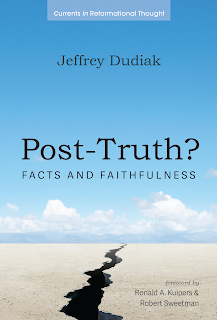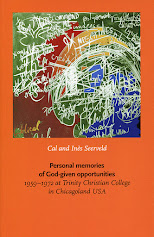
Available at: InterVarsity Press
Publisher's Overview:
While some Christians have embraced the relationship between faith and the arts, the Reformed tradition tends to harbor reservations about the arts. However, among Reformed churches, the Neo-Calvinist tradition—as represented in the work of Abraham Kuyper, Herman Dooyeweerd, Hans Rookmaaker, and others—has consistently demonstrated not just a willingness but a desire to engage with all manner of cultural and artistic expressions.
This volume, edited by art scholar Roger Henderson and Marleen Hengelaar-Rookmaaker, the daughter of art historian and cultural critic Hans Rookmaaker, brings together history, philosophy, and theology to consider the relationship between the arts and the Neo-Calvinist tradition. With affirmations including the Lordship of Christ, the cultural mandate, sphere sovereignty, and common grace, the Neo-Calvinist tradition is well-equipped to offer wisdom on the arts to the whole body of Christ.
Contents:
Introduction
Roger D. Henderson and Marleen Hengelaar-Rookmaaker
Part One: Roots
1. Geneva's Artistic Legacy: From Calvin to Today
Marleen Hengelaar-Rookmaaker
2. Calvin and the Arts: Pure Vision or Blind Spot?
3. Rumors of Glory: Abraham Kuyper's Neo-Calvinist Theory of Art
Roger D. Henderson
4. Dooyeweerd's Aesthetics
Roger D. Henderson
Part Two: Art History
5. Art, Meaning, and Truth
Hans R. Rookmaaker
Looking with Historical Depth: Hugo van der Goes, Filippino Lippi and Albrecht Dürer
6. The Vocation of a Christian Art Historian: Strategic Choices in a Multicultural Context
E. John Walford
Ridentem dicere verum—Pieter Bruegel’s Peasant Wedding of Circa 1567
7. More than Can Be Seen: Tim Rollins and K.O.S.'s I See the Promised Land
James Romaine
Part Three: Aesthetics
8. The Halo of Human Imaginativity
The Meaning of the Crucifixion: Grünewald and Perugino
9. Rethinking Art
Nicholas Wolterstorff
The Social Protest Meaning of the Graphic Art of Käthe Kollwitz
10. Imagination, Art, and Civil Society: Re-envisioning Reformational Aesthetics
Redemptive Art Criticism
11. Art, Body, and Feeling: New Roads for Neo-Calvinist Aesthetics
Chris Ofili: Contemporary Art and the Return of Religion
Part Four: Theology and Art
12. The Theology of Art of Gerardus van der Leeuw and Paul Tillich
Wessel Stoker
13. The Elusive Quest for Beauty
William Edgar
14. Fifty-Plus Years of Art and Theology: 1970 to Today
Victoria Emily Jones




















